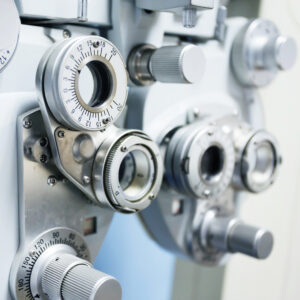Living in Maryland

For optometrists looking to head to the mid-Atlantic region of the US, Maryland is a beautiful coastal state with almost a quarter of its area surrounded by water. Home to prestigious universities like Johns Hopkins, Loyola, the University of Maryland, and the US Naval Academy, Maryland’s neighboring cities of Baltimore and Annapolis house over 10% of the state’s population.
For optometrists looking to pursue a fellowship in low vision, Johns Hopkins offers a prestigious opportunity for optometrists at the Wilmer Eye Institute. Another draw to living in Maryland is the proximity to Washington, D.C. In fact, many optometrists living in the greater D.C. area also have a dual license in Virginia or Maryland and commute across the border daily because of Maryland’s lower cost of living.
Maryland Scope of Practice

Despite its brilliant coastal vibe and vibrant urban sprawl, the state of Maryland has one of the most restrictive scopes of practice for optometrists. Luckily, the efforts of the Maryland Optometric Association (MOA) is currently fighting to change the future of ODs within the state. House Bill 471/Senate Bill 447 is currently being debated to allow optometrists to:
- Prescribe all FDA-approved therapeutic agents for ocular diseases and conditions (with exception to controlled dangerous substances)
- Independently treat patients with open-angle glaucoma; current state legislature requires co-management with an ophthalmologist
- Order and perform diagnostic testing: blood cultures and imaging only
- Remove most foreign bodies from the eye
According to the MOA, optometrists are the ONLY primary care eye doctors in six rural Maryland jurisdictions where there are currently no ophthalmology practices. Additionally, Maryland is the state that requires the permanent co-management of glaucoma patients and only one of the five states left that require an initial referral to an ophthalmologist without exception.
Antiquated legislation that currently exists to optometric physicians need to be changed, and it is the responsibility of passionate optometrists both within the state and nationally to help change the laws to help provide better access to healthcare for all.
In Maryland, optometrists CAN:
- Prescribe and dispense contact lenses and glasses
- Prescribe and dispense orthoptic therapy
- Prescribe oral medications, including Schedules II (hydrocodone-combination products), III, IV, and V drugs
- Diagnose and treat glaucoma with topical and oral drugs, but ONLY with the initial referral to an ophthalmologist
- Co-manage post-op care
- Perform procedures such as foreign body removal, dilation and irrigation, punctal occlusion, and eyelash epilation
In Maryland, optometrists CANNOT:
- Administer medications, including anesthetics, by injection, including subcutaneous infiltrative, intralesional, intramuscular, intravenous, and subconjunctival routes
- Prescribe oral steroids
- Perform minor surgical procedures to correct ocular abnormalities, such as removal of “lumps and bumps” around the eye
- Perform anterior segment laser procedures including YAG capsulotomy used to treat cloudy lens implants following cataract surgery, Selective Laser Trabeculoplasty (SLT) and Laser Peripheral Iridotomy (LPI) used to treat some forms of glaucoma
- Administer medications, including anesthetics, by injection, including subcutaneous infiltrative, intralesional, intramuscular, intravenous, and subconjunctival routes
- Perform cataract extractions, retinal surgery, or refractive surgery (such as LASIK)
- Laser or non-laser injection into the posterior chamber of the eye to treat any macular or retinal disease
- Administer general anesthesiaFor more information about scope of practice in your state, click here!

